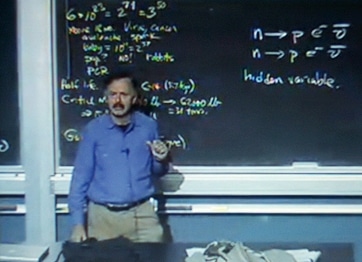If you’ve been following the science of global warming for over a decade—as I have—you might find the recent conversion of Berkeley physicist Richard Muller into a climate believer kind of underwhelming. That’s certainly the reaction of many longtime climate scientists, with whom Muller now, finally, agrees.
“At this rate, Muller should be caught up to the current state of climate science within a matter of just a few years!” climatologist Michael Mann tweeted. Climate scientist Ken Caldeira also had an amusing take, as quoted by Joe Romm: “I am glad that Muller et al have taken a look at the data and have come to essentially the same conclusion that nearly everyone else had come to more than a decade ago.”
Why, then, does Muller draw New York Times op-ed attention for his conversion? Is it really news that one individual physicist has finally come to agree that the science of climate change is very solid?
Note that this is not the first time this has happened with climate skeptic conversions in the media, or in the New York Times in particular. Remember the former skeptical journalist Gregg Easterbrook, of the New Republic and elsewhere? The New York Times published his conversion op-ed in 2006. Even at the time, some of us thought Easterbrook was pretty tardy in his turnaround–and this was six years ago.
Another prominent 2006 convert was the libertarian publisher of Skeptic magazine, Michael Shermer. Once again, upon hearing the Shermer news some of us thought, “better late than never, I suppose.” Or as I blogged at the time:
As in the case of Easterbrook, I don’t see why people like Shermer held out so long…but as we all know, there’s a lot of misinformation out there that can lead earnest people astray. So perhaps we should simply applaud these rather late AGW converts, rather than presuming to judge…
So what is up with former climate skeptics, conversions, and media attention?
The short answer is that most non-science journalists (and editors!) simply don’t know much about the science of climate change, or how solid it is. In this area in particular, they are classic low information thinkers, and so they make up their minds about what is newsworthy based upon short-cuts and heuristics.
This has many consequences. For instance, it explains why journalists (like average Americans) are much more likely to focus on climate change in the context of extreme heat and weather. It also makes these non-science journalists highly susceptible to framing effects—which gets to the heart of our story.
There are few frames that journalists dig more than the conversion story, the “Nixon Going to China” narrative, in all its various incarnations. And of course, they don’t dig it for scientific reasons—they dig it for political ones. A convert represents a shift—movement—in the overall political narrative. A convert is also likely a proxy for the public, especially at a time when more and more Americans are shocked and alarmed by extreme weather, and highly open to considering global warming as its cause.
What all of this means, of course, is that while in a scientific sense Muller’s conversion is quite insignificant–in fact, its tardiness may even seem rather trying–in a political sense, his recent arrival is all that matters. So just declare victory, my scientific friends. True, we won over most of the scientists that matter a long time ago. But politically, converts still count for a great deal.
Subscribe to our newsletter
Stay up to date with DeSmog news and alerts






